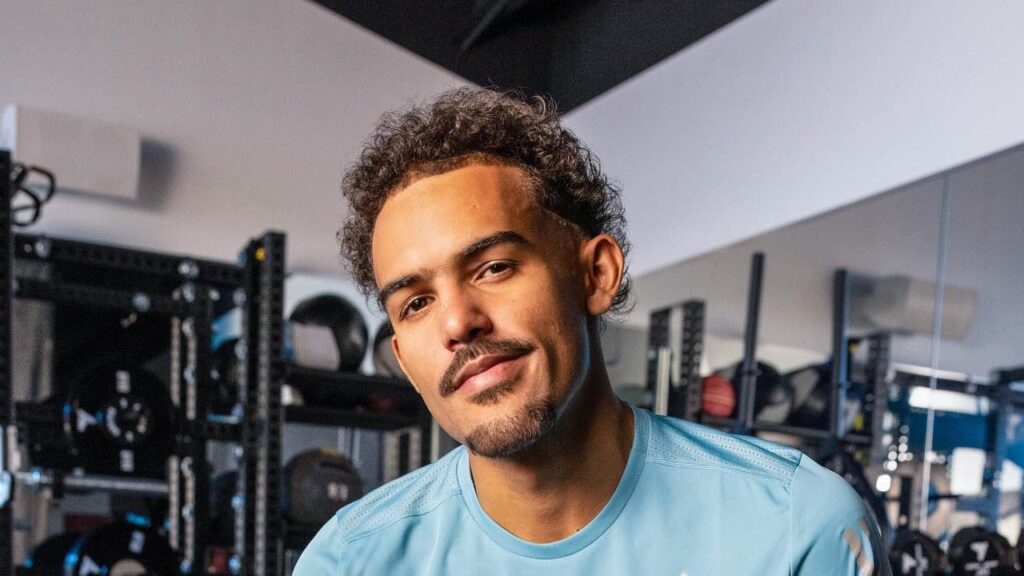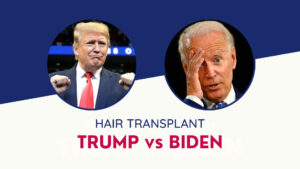Trae Young, despite his young age, is facing genetic hair loss. The NBA star, at only 26 years old, is battling androgenetic alopecia (male pattern baldness). While this condition is rare among those experiencing hair loss at a young age, Young’s hair loss is progressing quite noticeably and rapidly.

Genetic hair loss arises from hormonal changes that cause the hair follicles to shrink and weaken over time. Young’s hairline has noticeably receded since adolescence. This condition can be seen as the widespread thinning of his hair, resulting in a bald spot on the top of his scalp.
For a young celebrity like Trae Young, dealing with hair loss is often a necessity. However, there are several treatments and solutions available to combat hair loss, including:

- Finasteride (Propecia): Finasteride is an FDA-approved medication for male pattern baldness. This medication can halt hair loss and even, in some cases, promote hair regrowth. However, finasteride use may lead to some side effects, and further research is needed on its long-term effects.
- Minoxidil (Rogaine): Minoxidil is a topical solution for stopping hair loss and promoting growth. It is typically applied twice daily and can be effective for many individuals. However, it may require long-term use and can cause side effects in some people.
- Hair Transplant: Surgical hair transplantation may be an option for patients who have reached the advanced stages of hair loss. During this operation, hair follicles are transplanted to bald parts of the scalp, resulting in a more permanent hairline. Nevertheless, this necessitates surgical intervention and is associated with several dangers.
- Hair Loss Cosmetic Products: Many cosmetic products are available to camouflage hair loss. For example, hair fibers, sprays, or wigs can conceal hair loss.
How to Regrow Your Hair: Understanding the Basics
Everyone can find it upsetting when they encounter hair loss, thinning hair, or alopecia. Although there is no miracle drug for regrowing hair, it is essential to be aware of diet and nutrition’s role. This article will discuss some of the most important factors in regrowing hair: protein consumption, lysine, iron absorption, gut health, DHT inhibitors, and stress management.

Protein: The Foundation of Hair Growth
Proteins, and more specifically, collagen, are the primary components of hair. When it comes to maintaining strong and healthy hair, it is crucial to ensure you consume proper protein. However, not every protein is made equal in the same way. Because it helps promote strength and flexibility, lysine, an essential amino acid, is a key component in hair growth.
Lysine-Rich Foods for Hair Health
Proteins derived from plants and grains are not very good sources of lysine; however, proteins derived from animals, particularly red meat and eggs, are very good suppliers of this amino acid. Despite the widespread belief that red meat damages one’s health, selecting grass-fed beef of superior quality can provide necessary nutrients for the health of one’s hair, such as lysine and iron.
The Role of Iron in Hair Growth
A lack of iron may contribute to hair loss. Iron is essential for creating hemoglobin, which is responsible for transporting oxygen to the scalp. Lysine facilitates the delivery of sufficient nutrients to hair follicles. Both lysine and iron can be abundant in foods such as red meat, eggs, and cuts of organ meat.
Gut Health and Hair Growth
The gut plays a key role in nutritional absorption, including the absorption of amino acids such as lysine. Inflammation in the gut, or dysbiosis, can prevent the body from absorbing vital nutrients, resulting in hair loss. Particular dietary choices, such as a carnivore diet abundant in animal proteins, can alleviate inflammation in the gut and enhance the body’s ability to absorb nutrients.

DHT Inhibitors: Natural Solutions for Hair Loss
The powerful version of testosterone known as dihydrotestosterone (DHT) may be responsible for the shrinkage of hair follicles and hair thinning. Natural DHT inhibitors such as zinc, lysine, pumpkin seed oil, green tea extract, and nettle root can reduce DHT levels and assist in preventing and treating hair loss.
Managing Stress for Healthy Hair
Chronic stress can exacerbate hair loss by increasing cortisol levels, which have catabolic effects on the body. Lowering stress through mindfulness practices and adequate zinc intake can support hair regrowth.
The Importance of B Vitamins and Nutritional Support
B vitamins, including B1, B5, and B12, are necessary for maintaining overall health and can potentially encourage hair development. Nutritional yeast and diets based on animal products, such as the carnivore diet, can be rich sources of B vitamins, which support the digestive tract’s health and promote hair regeneration.

Conclusion: Taking Action for Hair Restoration
Regrowing hair requires a multidimensional strategy that includes nutritional choices, optimizing gut health, managing stress, and providing tailored nutritional assistance. Individuals can take preventative measures toward hair regrowth by prioritizing meals rich in lysine, maintaining iron levels, supporting gut health, reducing DHT, and controlling stress.
No obvious information regarding Trae Young’s hairline or treatment strategy is available. However, like many other people experiencing hair loss, Trae Young has probably sought a physician’s opinion and considered the various treatment options.
In conclusion, a public figure like Trae Young battling hair loss might motivate young people to experience comparable conditions. Several different treatment options are available for hair loss, and a solution can be found based on the individual’s specific requirements and preferences. However, it is essential to consult with professionals regarding the application of these treatments and their effects.





